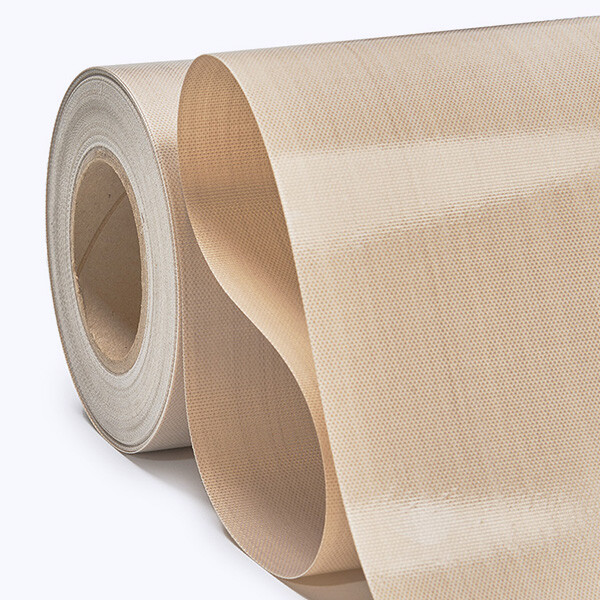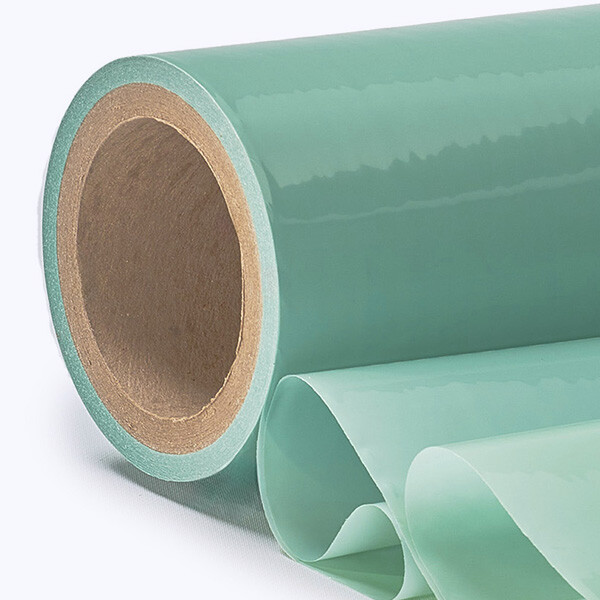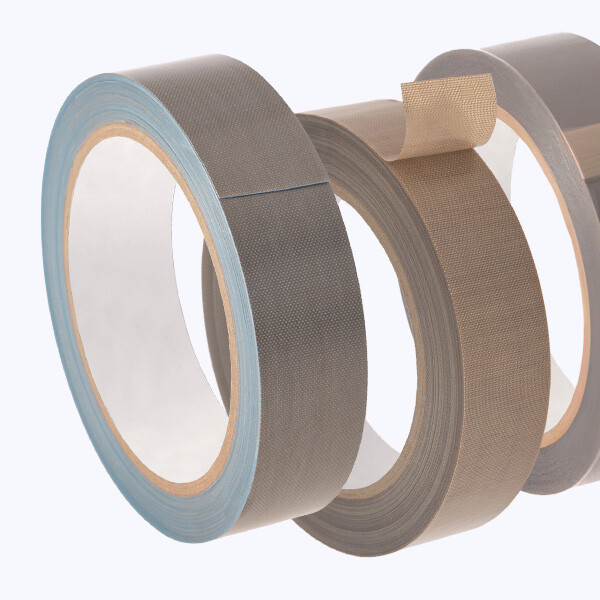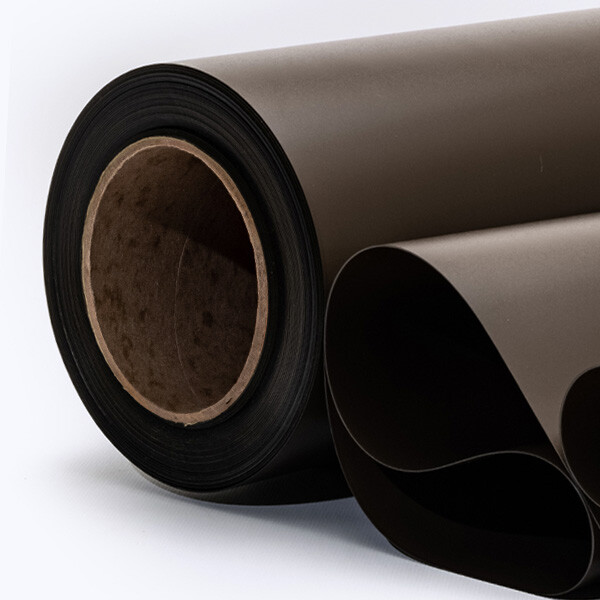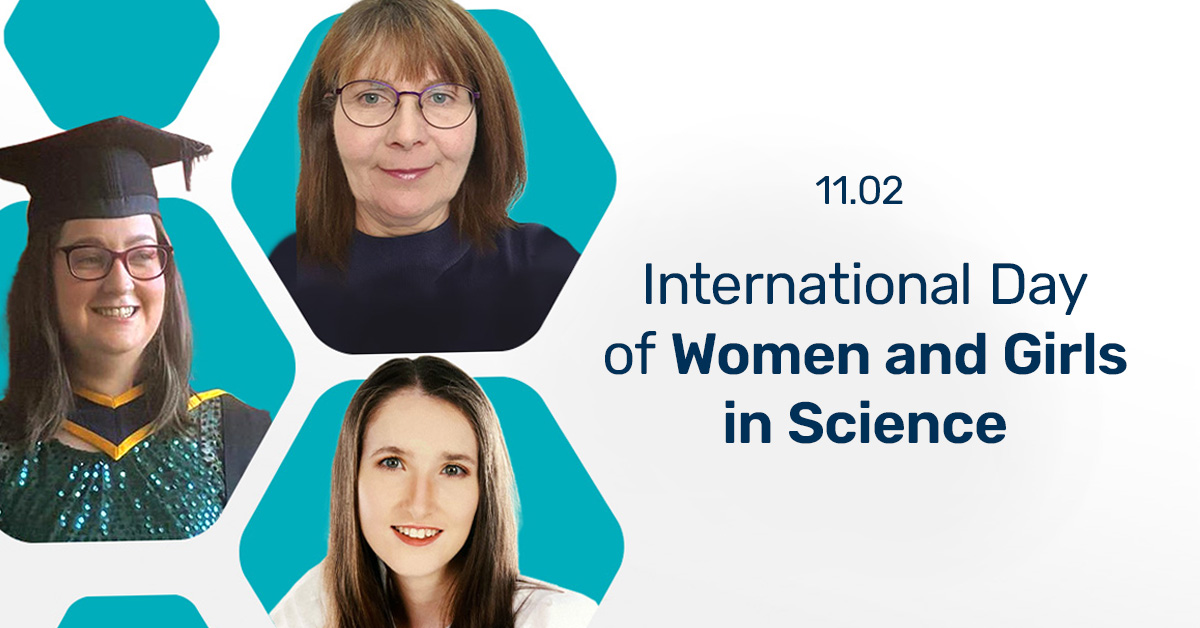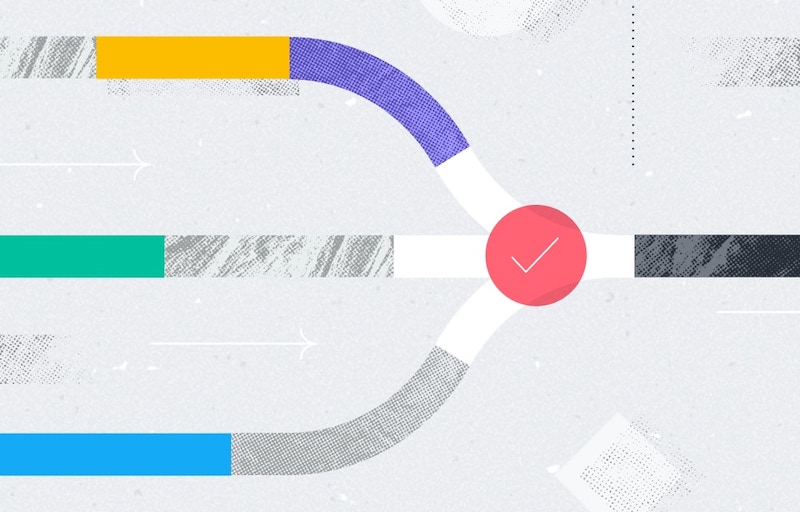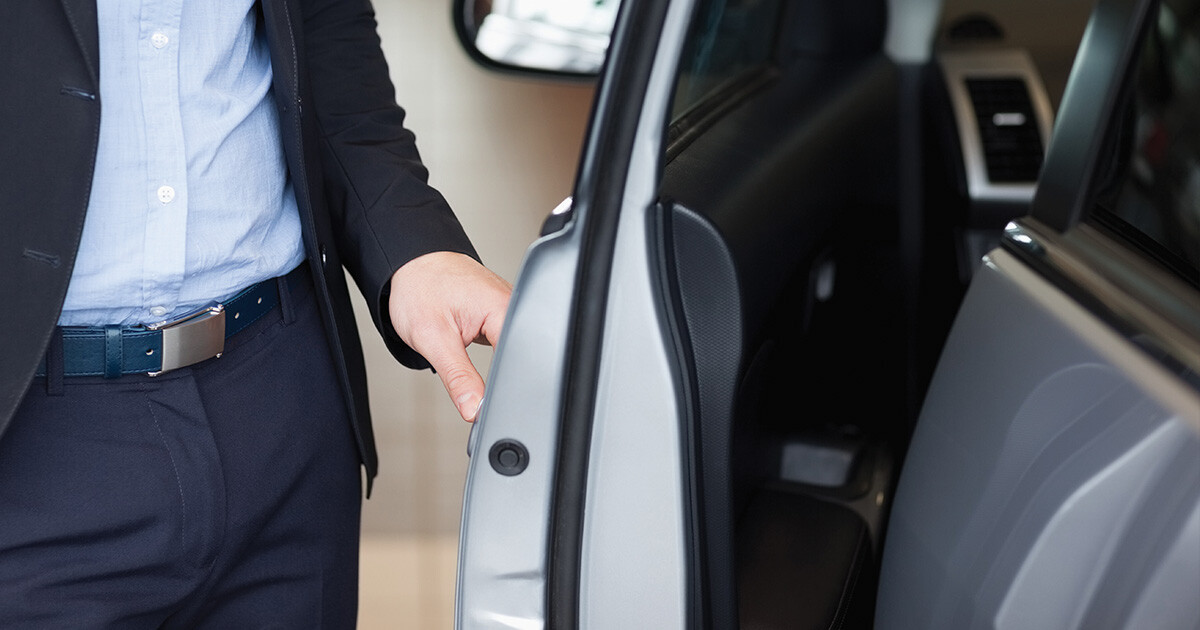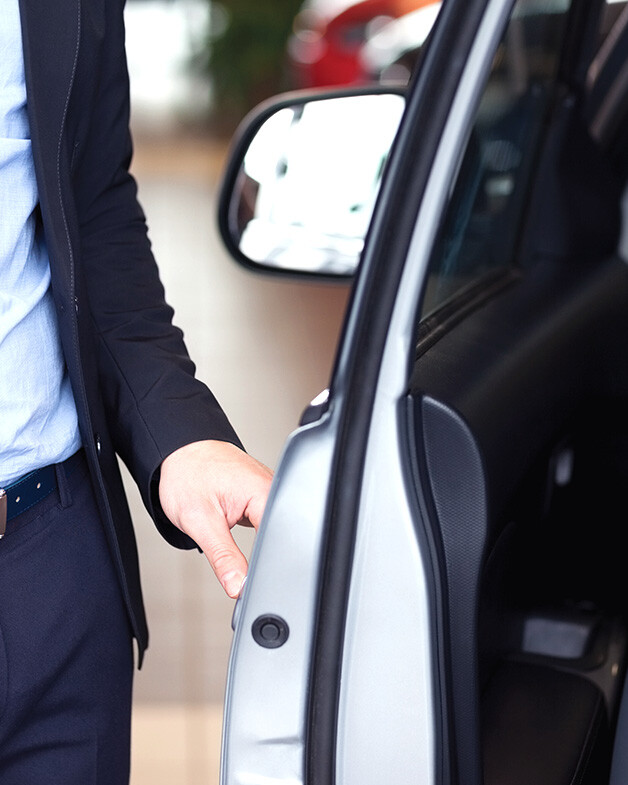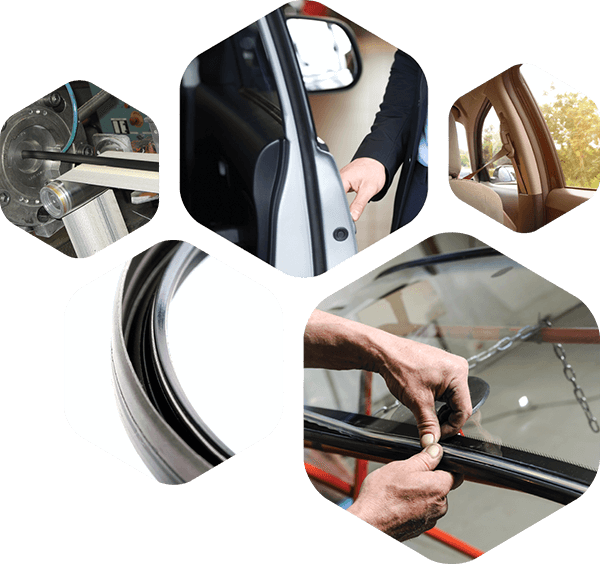Versiv Manufaturing Aids for Extruded Rubber Processing
Rubber profile processing is a complex operation that produces automotive seals, primarily for doors and windows. This process involves high-volume manufacturing in a continuous sequence, requiring flexibility to handle corrosive chemical additives mixed with various rubber substrates.
Versiv belts and release sheets are widely used in rubber profile manufacturing, ensuring excellent release during the curing and cooling of polymeric materials like polyurethane (PU), polyethylene (PE), and polyvinyl chloride (PVC).

During the extrusion stage, unvulcanised rubber is forced through dies under pressure, shaping it into a profile that subsequently undergoes crosslinking, heat treatment, and curing to achieve its final form. This continuous high-temperature rubber extrusion system, which can extend up to 40 meters in length, is the pathway through which the release solutions flow.
Versiv PTFE-Coated fabrics act as a release surface for all the sequential processing stages, as well as the transportation surface for this heavy chemical load. These non-stick PTFE products ensure that final products release perfectly from the belt at each processing stage.
Hard wearing and smooth, Versiv PTFE release solutions support continuous production and minimise the risk of unplanned downtime and rejects during the curing process, boosting efficiency and quality in rubber profile processing.

